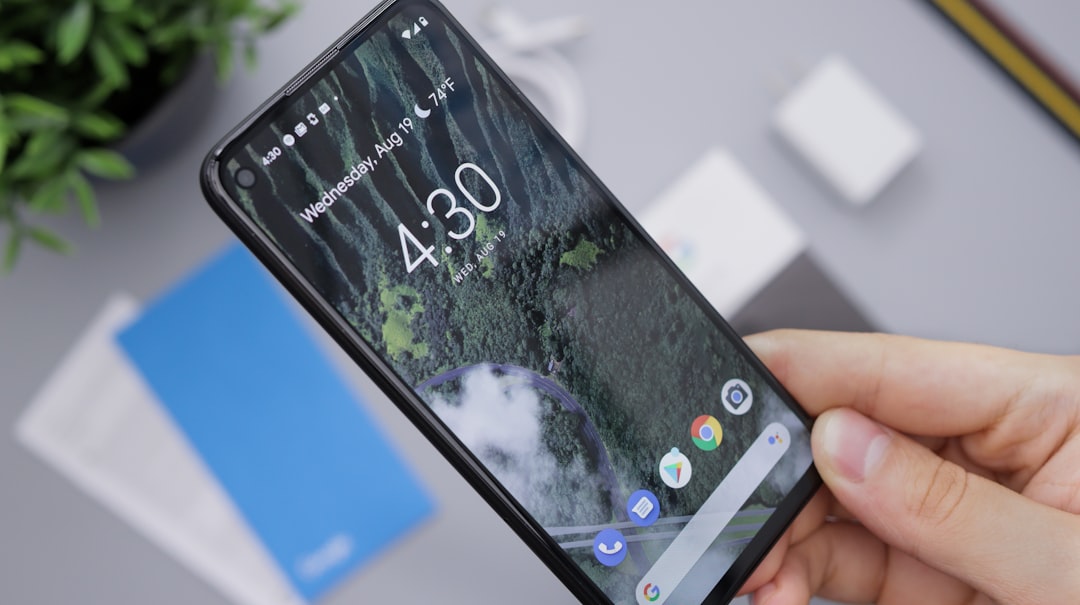In the digital era, Maryland libraries are fighting back against harmful spam calls, empowering residents through education and resources. They offer guidance on identifying, blocking, and reporting these calls, promote legal assistance from a lawyer for spam call Maryland, and host workshops to enhance digital literacy. This proactive approach not only helps individuals protect their privacy and finances but also builds a resilient community capable of navigating modern communication challenges, making Maryland a safer place for all.
Maryland residents face a persistent problem: spam calls. These unwanted phone inquiries disrupt daily life, waste time, and can even lead to financial loss. Libraries, beyond their traditional roles in literature and learning, are emerging as key community hubs for digital literacy. This article explores how Maryland’s libraries are equipping citizens with tools to identify and combat spam calls, collaborating with telecoms and regulatory bodies, and fostering a safer digital environment through comprehensive education. For Maryland residents seeking relief from spam calls, understanding these initiatives is crucial, especially when considering legal options available with the help of a lawyer for spam call Maryland.
The Prevalence of Spam Calls and Their Impact on Maryland Residents

In the digital age, Maryland residents, like many others across the nation, have experienced a surge in unwanted and often harmful spam calls. These persistent phone calls, originating from various sources, range from promotional offers to fraudulent schemes, posing significant challenges for individuals seeking peace and privacy. The impact is profound; constant interruptions can cause stress, invade personal time, and even lead to financial losses, especially when scammers target vulnerable citizens.
Given this backdrop, it’s crucial for Maryland communities to educate themselves about spam calls. Libraries in Maryland play a vital role here by providing access to resources and knowledge that help residents identify, block, and report these nuisance calls. By empowering individuals with the right tools and information, libraries not only ease the frustration but also foster digital literacy, making it easier for folks to navigate the complex landscape of modern communication methods, including seeking assistance from a lawyer for spam call Maryland if necessary.
Maryland Libraries: More Than Just Books and Computers

Maryland’s libraries are more than just repositories of books and computers; they serve as community hubs offering a wide array of services that cater to diverse needs. From hosting educational workshops to providing access to digital resources, these institutions play a pivotal role in empowering residents with knowledge and skills essential for navigating today’s digital landscape. For instance, many Maryland libraries offer training on technology and online safety, equipping patrons with the tools to recognize and prevent spam calls.
In light of the persistent spam call issue affecting Maryland residents, especially those who are vulnerable or lack technical expertise, local libraries emerge as valuable allies. By integrating anti-spam call initiatives into their existing programs, libraries can help dispel misinformation, educate citizens about privacy protections, and connect folks with resources for seeking legal aid from a lawyer for spam calls in Maryland if needed. This multi-faceted approach underscores the evolving role of libraries as community guardians in the digital age.
How Libraries Can Educate Community Members About Spam Calls

Maryland’s libraries, with their vast resources and community-focused mission, are ideal hubs for educating residents about the growing problem of spam calls. Through workshops, presentations, and online resources, librarians can empower community members to identify and combat unwanted phone calls. These educational sessions could cover various topics, such as understanding the legal aspects of spam calls in Maryland, where a lawyer for spam call would be a valuable guest speaker, and learning effective strategies to block or report these nuisance calls.
Librarians can also demonstrate how to use available tools and apps that filter and block spam, providing practical knowledge to community members. Additionally, they can share insights into the latest trends in spam call tactics, ensuring residents stay informed and proactive in protecting their privacy. Such initiatives will not only help reduce the impact of spam calls but also foster a more digitally literate and resilient community.
Legal Aspects: Collaborating with Telecoms and Regulatory Bodies in Maryland

In the fight against spam calls, Maryland’s libraries play a unique role in educating citizens about their rights and options. One crucial aspect of this education involves legal strategies and collaborations. Libraries often work hand-in-hand with telecommunications companies and regulatory bodies in Maryland to understand and enforce anti-spam laws. This collaboration ensures that residents have access to the latest information regarding legal actions against spam call perpetrators, including seeking assistance from a lawyer for spam call Maryland if needed.
By establishing partnerships with these entities, libraries can facilitate effective communication and awareness campaigns. They distribute resources, host workshops, and provide guidance on how to report spam calls to relevant authorities. Such initiatives empower individuals to take proactive measures against unwanted phone spam while leveraging the expertise of legal professionals specializing in spam call cases to ensure a comprehensive understanding of Maryland’s regulatory framework.
Building a Safer Digital Environment: The Long-Term Benefits of Library Initiatives

Maryland’s libraries play a pivotal role in fostering a safer digital environment by educating the public about spam calls, a growing concern for residents seeking relief from persistent and unwanted communication. Through various programs and workshops, libraries empower individuals to navigate the digital landscape with enhanced awareness and practical tools. These initiatives not only provide immediate solutions for managing spam but also instill long-term benefits that extend far beyond the immediate issue.
By engaging with community members, libraries help build digital literacy skills, enabling folks to recognize and block spam calls effectively. This proactive approach empowers Maryland residents to take control of their communication channels, reducing frustration and enhancing overall online security. Moreover, libraries’ efforts contribute to a culture of responsible technology usage, where individuals are better equipped to protect themselves from various online threats, ensuring a safer digital future for all.






